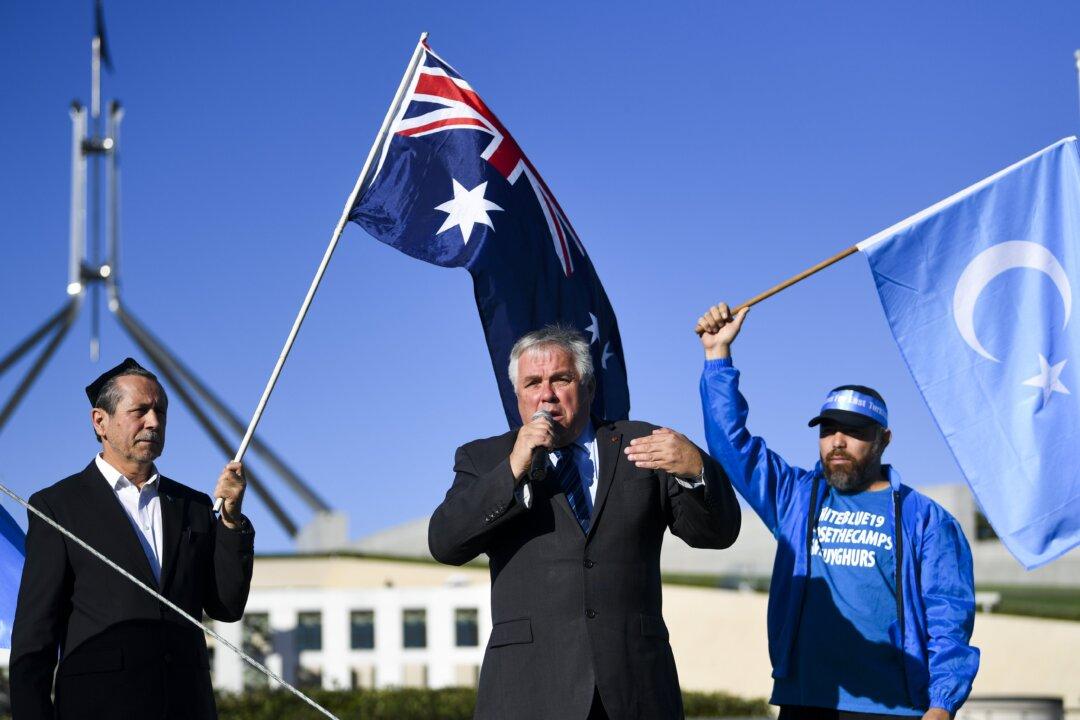South Australian Independent Senator Rex Patrick has accused Premier Steven Marshall of “sleeping with the enemy” after the state leader spoke at the opening of a new Chinese consulate in Adelaide—where he was shouted down by hundreds of protestors.
Patrick, who spoke at the protest, expressed concerns about the national security implications of the controversial new Chinese consulate in the quiet suburb of Joslin, which is in the same city that is home to the country’s new $145 billion naval shipbuilding program.





